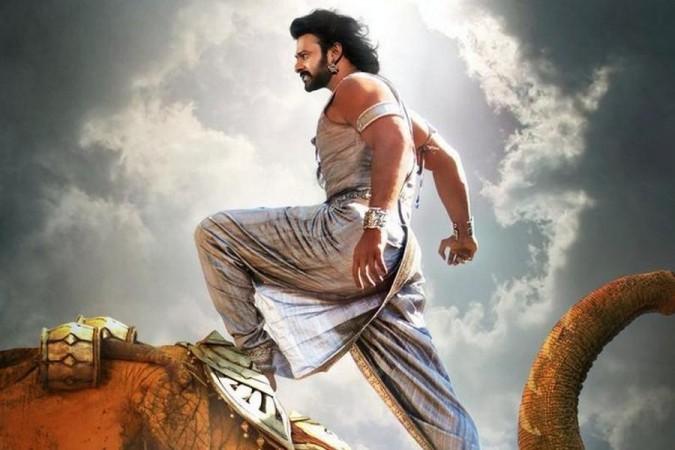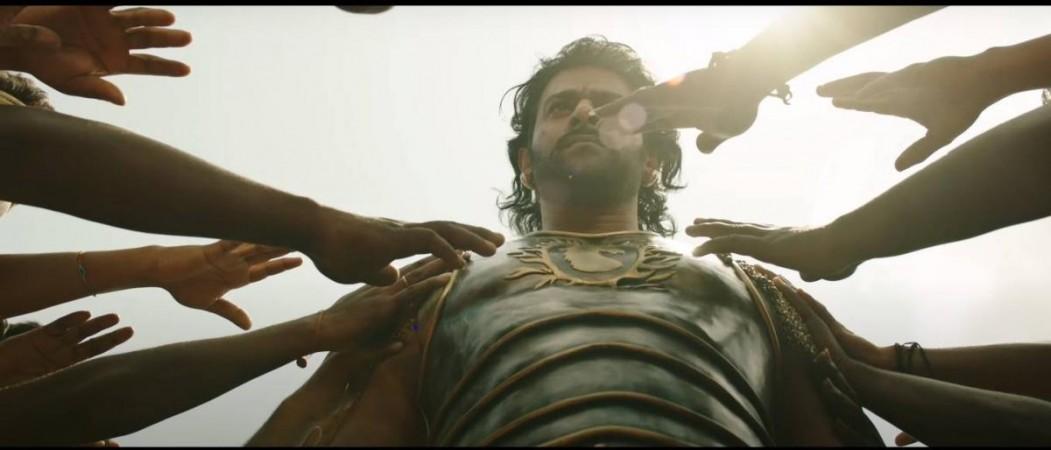During an interview director SS Rajamouli, the nation (probably for the first time) would have unanimously come together to know, why Kattappa killed Baahubali. It was that particular cliffhanger that kept us all waiting for two years.
The answer wasn't easy. For some it was predictable. There was a separate kind of politics involved which only urged us to watch and experience the film on big-screen more than once. But no matter what reviews one read, we all knew that this was a film which we were going to experience in the cinema halls.

Here are some of the basic qualities of SS Rajamouli's film which made Baahubali stand out.
No copying from the West
We mocked Koi Mil Gaya which made an attempt to steal the plots from E.T: The Extra-Terrestrial and Tobey Mcguire starrer Spider-Man. The sequels of the Hrithik Roshan starrer only added to the mockery. Shah Rukh Khan's Ra-One was Anubhav Sinha's another hilarious attempt to copy Robert Downey Jr starrer Iron-Man.
Director SS Rajamouli, along with writers KV Vijayendra Prasad derived his scripts from the Indian mythology. While Baahubali represented the kind king Ram from Ramayana, Bhallaladeva represented the usurper, arrogant, son, Duryodhon from Mahabharat. After all, why take from the western countries what already exists in India?
Adhering to the nature of hero-worshipping
In India, there's a tendency where we are quick to worship someone, be it in politics or in cinema. In 2002 post the devastating Gujarat riots, hardly anyone had predicted a prosperous future for then Chief Minister of the State Narendra Modi. It was in 2014, when a wave of Modi madness was witnessed, where many were seen worshipping images of the BJP Prime Ministerial candidate. Even in 2019, while many news channels had predicted a loss for the ruling party, the mad love for Prime Minister Narendra Modi prevailed and he continued to defeat the same candidate whom he had defeated in 2014.

In cinema, we quickly chose Shah Rukh Khan to be our hero when the actor taught us how to love. We quickly made angry, young, man Amitabh Bachchan to be our hero when he stood in front of the temple, scolded the idol and begged to spare his mother.
Similarly, in SS Rajamouli's film, Baahubali quickly became a hero when he successfully defeated the Kalkeya. He also possessed administrative skills, which made him a huge role model in the kingdom of Mahasmati.
Baahubali loses the crown but not his will
When Bhallaladeva and his loyal followers, dethroned Baahubali and banished him from the kingdom, nothing deterred the spirit of Baahubali. He stood up for his wife, slit the throat of the man who molested Deva Sena and remained unapologetic about it, even if his stand meant that he had to give up his royal title. (Remember, Baahubali happened before Harry and Meghan gave up their royal titles).
We learnt that people in the kingdom of Mahasmati did not respect Baahubali for his throne or the crown. They loved him because he had the ability to think and work like the leader which made a powerful Bhallaladev feel insecure even when his mother bestowed upon him the royal titles.
Men are the kings but women are the rulers
Each of the women characters in the film, Shivgami, Deva Sena, and Avanthika, played a role in building an army to fight against the real enemy-patriarchy. Although Shivgami and Deva Sena failed to get along with each other on moral and administerial grounds, there came a moment when the former touched the latter's feet and asked for forgiveness.
For one moment, she forgot that herself to be the proud mother-in-law, the Queen of Mahismati, and shamefully accepted herself as the killer of a possible ruler of Mahismati, a father, a son, and a husband. Meanwhile, Deva Sena instead of enjoying the glory of being in the superior position asked her mother-in-law to do the right thing, which was to save the future king of Mahismati. Although Deva Sena was treated like a prisoner, she chose not to give up her dignity to get back to her royal life.








